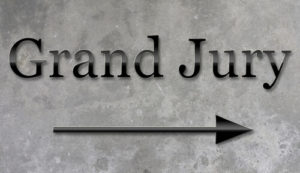What the Trump-Russia Grand Jury Means
 By the C|C Whistleblower Lawyer Team
By the C|C Whistleblower Lawyer Team
Hours after news broke that Robert Mueller, the special counsel in the Russia probe, has impaneled a grand jury as part of his investigation, President Trump declared at a rally in West Virginia that “the Russia story is a total fabrication. It’s just an excuse for the greatest loss in the history of American politics.”
Trump’s comments, which were meant to denigrate and perhaps thwart the Mueller probe, were undermined by the fact that the grand jury has been at work for several weeks in the District of Columbia. Grand juries don’t investigate hoaxes, and there are rules against using them for anything resembling a political witch hunt. The grand jury is significant because it means that Mueller is in the midst of a “predicated” criminal investigation. That is, he has reached the point where he has evidence of criminal conduct. “It can’t be used for a fishing expedition,” Matt Olsen, a former federal prosecutor, said. “He’s got a very powerful tool to pursue specific federal crimes.”
Generally, in the early stages of a criminal case, grand juries are used to compel the production of documents and other evidence, which may be how the Wall Street Journal, which broke the story, discovered what Mueller was up to. While Trump has maneuvered to shut down the case—by attacking Mueller; Jeff Sessions, the Attorney General; and Andrew McCabe, the former acting head of the F.B.I., and now its deputy—a grand jury can mean the investigation may drag on for months or even years. The grand jury also makes it even more difficult and politically explosive for Trump to attempt to dismiss Mueller, whose use of a grand jury is the most concrete evidence yet that he is pursuing an expansive criminal case related to the Trump campaign’s possible involvement in Russia’s attempt to meddle in the 2016 election. New Yorker